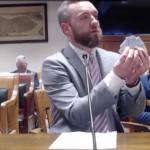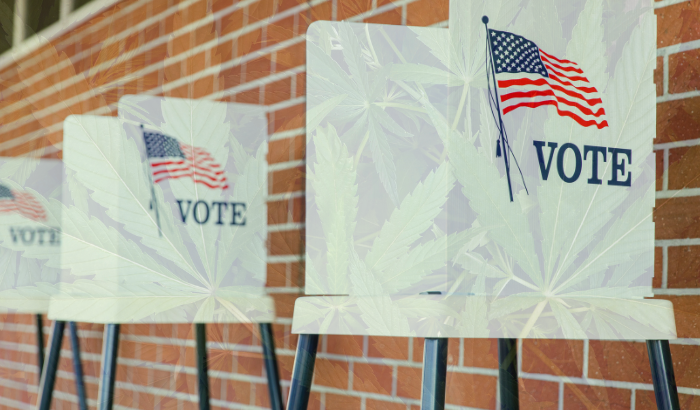
A rundown on new regulations impacting Host Community Agreements, Social Equity and Municipal Equity Provisions, and Revised Suitability Standards for Registered Agents
After being signed into law on August 11, 2022, Chapter 180 of the Acts of 2022, An Act Relative to Equity in the Cannabis Industry went into effect on November 9, 2022. This new statute significantly impacts the $5 billion cannabis industry in the Commonwealth of Massachusetts, particularly with respect to (1) Host Community Agreements between host municipalities and cannabis businesses, (2) new Social Equity provisions and municipal equity requirements, and (3) revised suitability standards for agents working for licensed cannabis businesses.
The Massachusetts Cannabis Control Commission (the “Commission”) was required to amend its existing medical and adult-use cannabis regulations to implement this statute. The Commission voted in September to approve the final version, and the amended Adult Use of Marijuana Regulations (935 CMR 500.00) and Medical Use of Marijuana Regulations (935 CMR 501.000) regulations officially became effective on October 27, 2023.
Below is a high-level overview of the key provisions in the amended regulations.
Host Community Agreements
The amended regulations provide for substantial limitations and new requirements for Host Community Agreements (HCAs) entered into between license applicants or licensees and their host municipalities.
New Commission Authority Over HCAs
The Commission will now have clear authority to:
- Review and approve HCAs, including the ability to deem a specific provision to be invalid or unenforceable
- Create a Model HCA contract
- Impose a variety of penalties, including sanctions, on host communities that are out of compliance with HCA regulatory requirements
Timeline for Commission Review of HCAs for Regulatory Compliance
Starting on March 1, 2024, the Commission will require license applicants to submit an HCA or an HCA Waiver as part of the initial license application, and existing licensees will also be required to submit an HCA or HCA Waiver as part of the annual license renewal application. The Commission will then review each HCA to determine whether it complies with the new regulatory requirements for HCAs.
Within 90 days of receiving an HCA, the Commission must complete its HCA review, and either request additional information or send a determination notice to both the host municipality and license applicant or licensee. If the Commission deems the HCA to be non-compliant, the determination notice will identify the non-compliant provisions and the parties’ options for addressing the non-compliance, which include amending the HCA or submitting a compliant HCA Waiver. An existing licensee and its host community also have the option of signing a temporary HCA that conforms to the Commission’s Model HCA until an alternative HCA can be negotiated.
A host community that no longer desires to be a host community has the option to “discontinue relations” with a licensee, as long as the host municipality does not act in bad faith. After notifying the Commission of the host municipality’s intent to discontinue relations, the licensee may submit a request to the Commission to grant one or more equitable remedies, including but not limited to, extension of a license expiration date without penalty and waiver of a Change of Location application fee.
Community Impact Fee Requirements and Restrictions
As was the case under the prior statute and regulations, an HCA may still require a licensee to pay a Community Impact Fee (CIF) to the host municipality, and the CIF must still be “reasonably related” to the costs imposed upon the host community by the licensee’s operations. The term “reasonably related” is defined as a “demonstrable nexus between the actual operations of a Marijuana Establishment or [Medical Marijuana Treatment Center] and an enhanced need for a Host Community’s goods or services in order to offset the impact of operations.”
However, under the new regulations, there are a variety of requirements and restrictions related to CIFs that host communities, license applicants, and licensees should be aware of:
- The CIF cannot be based on a percentage of the licensee’s sales, and the amount of the CIF cannot exceed three percent of the licensee’s gross sales.
- The host municipality must document and transmit to the licensee a detailed invoice of claimed CIFs for the licensee’s preceding year of operations within one month of the anniversary date of the licensee’s receipt of a final license from the Commission. The host community’s CIF invoice must include specific line items identifying the amount and purpose of each cost imposed and their relation to the licensee’s operations.
- Within 30 calendar days of receiving the CIF invoice from the host community, the licensee must then submit the CIF invoice and any supporting documentation, as well as documentation verifying the licensee’s gross annual sales, to the Commission for review and certification.
- Unless disputed by the licensee, the CIF becomes due and payable upon certification by the Commission and must be paid no later than the end of the current fiscal year or within 90 days of the date of the Commission’s CIF certification, whichever is later.
- A host municipality cannot charge a CIF to any licensee that has held a final license from the Commission for more than nine years.
- A licensee is explicitly authorized to bring a private breach of contract action against a host community to have a court independently review a host community’s claimed CIF.
It is crucial that existing licensees understand the new regulatory requirements and processes for CIFs that are now in effect and confirm the relevant dates (such as the anniversary date of the licensee’s receipt of a final license) and submission deadlines to ensure compliance.
Prohibited Provisions
The new regulations also prohibit certain provisions that have historically been included in many prior and current HCAs, including provisions that:
- Obligate a licensee to make future monetary payments, in-kind contributions, or charitable contributions to the host community or any other organization.
- Require a licensee to set aside money in an escrow, bond, or other account for a host community’s use.
- Impose legal, overtime, or administrative costs, or any costs other than a CIF, with the exception of tax obligations and routine municipal fees that generally apply to all types of businesses operating in the municipality.
- Deter a licensee from bringing a civil cause of action or other legal challenge to an HCA.
- Require a licensee to waive its ability to dispute whether a CIF is reasonably related to the costs imposed by its operations.
License applicants currently negotiating HCAs should fully understand the Commission’s new regulatory requirements before finalizing and executing any HCA.
Existing licensees should also review their current HCAs to identify provisions that are non-compliant and will need to be modified. In many instances, renegotiation with the host municipality and a formal amendment or entirely new HCA will be necessary to ensure the HCA is compliant with the current regulations and will ultimately be approved and enforced by the Commission going forward.
Social Equity and Municipal Equity Provisions
The Commission’s amended regulations now include new provisions benefitting Social Equity businesses and new requirements for municipalities to promote equity in the cannabis industry in Massachusetts, including the following noteworthy provisions:
- Municipalities are now obligated to publish information about their local licensing process for cannabis businesses and to standardize their evaluation criteria and procedures when making decisions to select certain applicants over others.
- Host communities must prioritize good faith negotiations of HCAs with Social Equity applicants and businesses, as well as comply with specific regulatory requirements intended to support equity parties and promote their full participation in the cannabis industry.
- If a host municipality that has already reached its cap on the number of cannabis businesses allowed to operate within its boundaries decides to expand its cap, at least 50% (but no less than one) of the new opportunities must be reserved for Social Equity businesses.
- The Commission’s Pre-Certification process for Social Equity license applicants is now available for all license types, and is no longer limited to applicants applying for Marijuana Courier, Delivery Operator, and Social Consumption Establishment licenses.
- Prospective Social Equity license applicants may participate in a new verification process created by the Commission to take advantage of municipalities’ efforts to prioritize Social Equity businesses during local licensing processes.
- The Commission is authorized to impose monetary fines on municipalities that do not comply with the new municipal equity regulations and to deposit these funds into the Cannabis Social Equity Trust Fund.
- A licensee is now authorized to fulfill part of its Commission-required Plan to Positively Impact Disproportionately Harmed People by making monetary donations to the Cannabis Social Equity Trust Fund, which is administered by the Executive Office of Economic Development and designed to provide loans and grants to qualified Social Equity businesses.
Revised Suitability Standards for Registered Agents
The Commission’s amended regulations revised some of the preexisting suitability standards used to determine whether an individual will be disqualified from working as a registered Agent of a Marijuana Establishment or Medical Marijuana Treatment Center due to the individual’s background.
For example, the new regulations no longer require a mandatory disqualification of an individual with a felony drug trafficking conviction or an individual with a felony sex offense conviction. A prior conviction involving the distribution of a controlled substance to a minor still requires a mandatory disqualification, but open/unresolved criminal proceedings resulting in a presumptive negative suitability determination are now limited to offenses involving the distribution of a controlled substance to a minor.
Notably, the Commission did not change the suitability standards in the regulations for individuals that have “Direct or Indirect Control” over a licensee or for registered Agents of Independent Testing Laboratories.
Moving Forward
The Commission’s amended regulations make substantial changes to the current regulatory framework related to HCAs, Social Equity businesses, municipal equity, and agent suitability. These changes reveal a clear intent to make real progress towards achieving the goals of creating new opportunities and a level playing field for Social Equity businesses, and continuing to build a successful, equitable cannabis industry in Massachusetts.
This article was originally published on Vicente LLP’s Insights blog
More about the author here
























